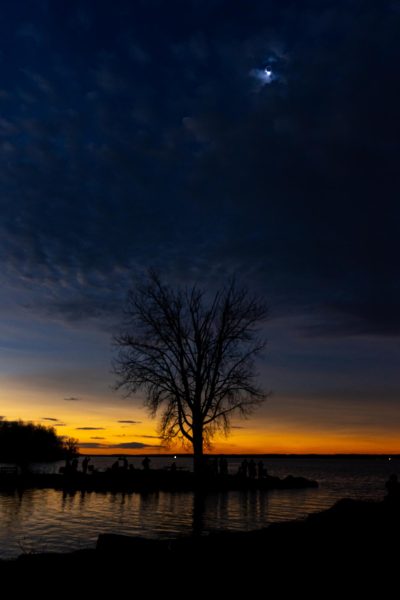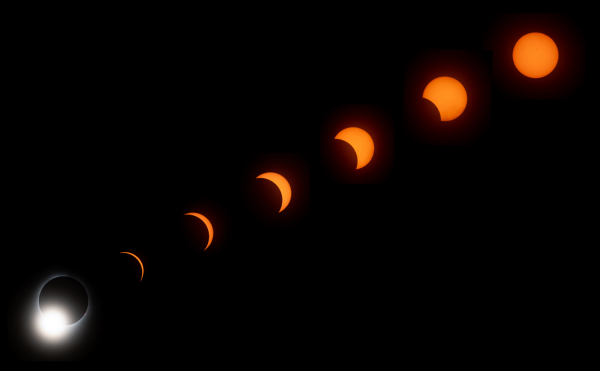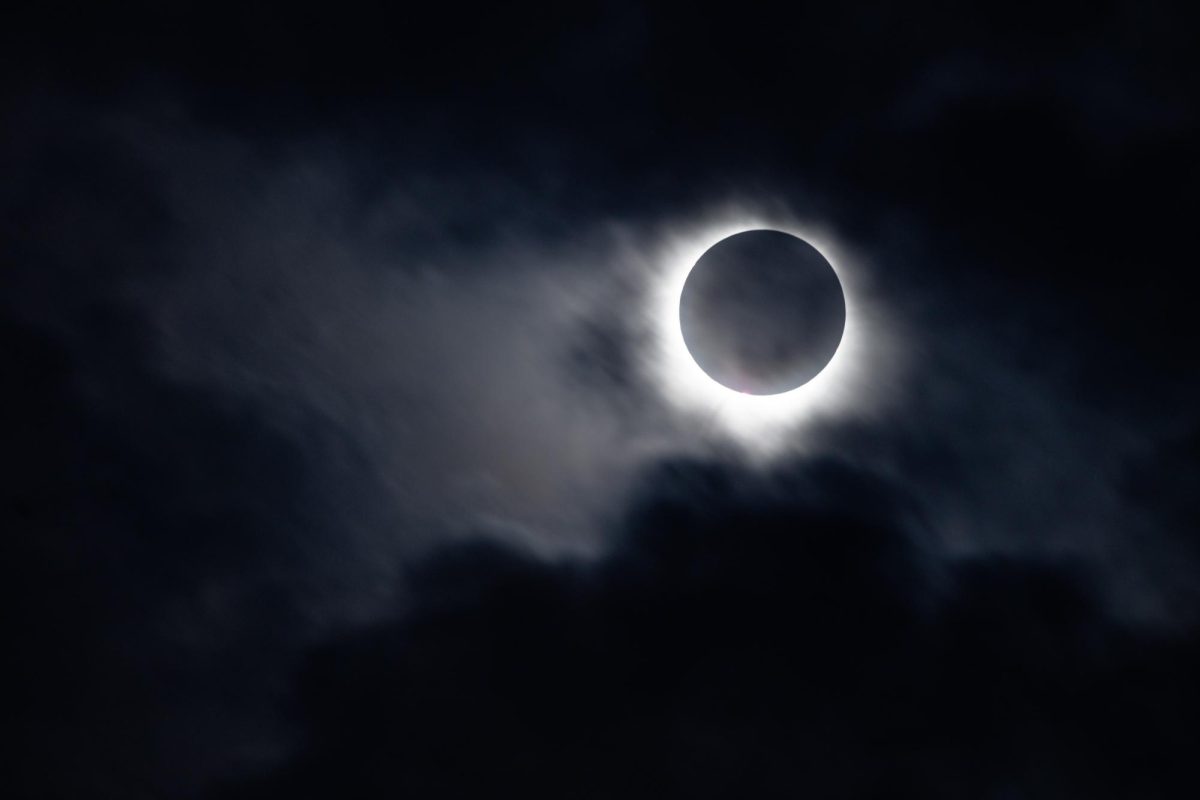On Monday morning, all bets were wagered on two words — “partly cloudy.” Families, amateur astronomers and Pitt students alike made the journey into the path of totality for the 2024 North American solar eclipse, the area of the earth completely in the moon’s shadow.
Around 400 people made a gamble that Pymatuning State Park, approximately 90 miles north of Pittsburgh, would have clear enough skies to witness the astronomic event. Eclipse viewers were glued to weather forecast updates all morning, hoping the clouds overhead would blow away just in time for the eclipse to begin.
Groups staked out the perfect spot hours before the total solar eclipse was set to begin at 2 p.m. Jonathan Bliss, a Pitt alumni from Imperial, Pennsylvania, was situated near the reservoir with his family. They packed lawn chairs, snacks and a Pitt-themed cornhole game in preparation for the special event.
“[I’m excited to] be able to spend time with family and have the kids experience this opportunity,” Bliss said.
By 1 p.m., the largest clouds moved to the southeast, leaving an unusually sunny spring afternoon in its wake. A sense of anticipation began to build along the banks of the reservoir. Amateur astronomers used paper plates to focus their telescopes on the sun. Latecomers lined the rock wall barrier of Dam Road.
Junior computer science majors Austin Bustos and Ben Gradeck and junior political science major Azriah Crawley found a spot on the grass next to Pymatuning Dam just before the eclipse began. The group chose Pymatuning in the hope it would be less hectic than driving north to Erie.
“My mom is from around the area,” Gradeck said. “And I knew about this lake. I’ve been coming here for a while.”

Bustos was in Missouri during the 2017 solar eclipse and expressed excitement to see an eclipse for the second time. Despite it falling on a school day, many of his professors canceled class to allow students to travel for the eclipse.
The moon’s progress across the sun was leisurely, talking almost an hour. But slowly, the sunlight dimmed. Shadows no longer had harsh edges and the light paradoxically took on a twilight glow.
Cheers echoed throughout the park as the sun fully disappeared. Viewers took off their solar eclipse glasses to be greeted by an awe-inspiring experience. The corona, the outermost layer of the sun, emanated behind the moon, silhouetting it with a flicker of light. Totality only lasted 2 minutes and 58 seconds at Pymatuning State Park, according to NASA. Before the awe could fully settle, sunlight began to peek from behind the bottom left of the moon.
Many families immediately folded up their blankets, leaving almost as quickly as totality itself. Cars flooded the single lane road as most groups left to beat the impending horde of traffic down I-79.

Senior biology major Kieran Brennan stayed behind with his friends to recount the eclipse with each other.
“It was the coolest thing I’ve ever seen,” Brennan said.
He was grateful for the great weather and the opportunity to spend the day with friends. Brennan said he had little expectation going into Monday, but felt it was well worth the trip to Pymatuning and felt sorry for people who didn’t get to see it.
“You missed out,” Brennan said. “It was totally worth it.”
For those unable to make it to this year’s total solar eclipse, the next one will take place in Europe on Aug. 12, 2026, according to NASA.
Third-year pharmacy student Kolbe Bien was still reeling from the experience.
“Nothing could have prepared me for that,” Bien said. “That’s gonna be a memory I’m going to hold on to for the rest of my life.”



